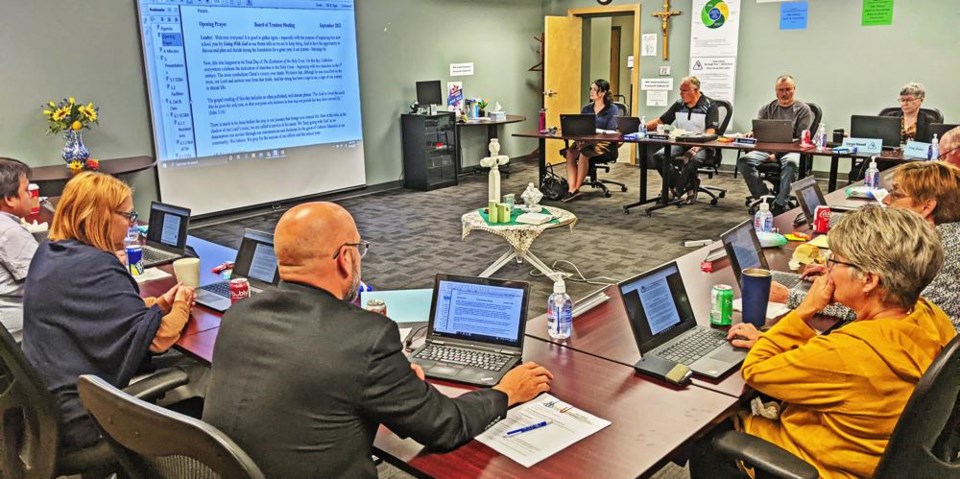WEYBURN – The services provided by speech-language pathologists in Holy Family’s schools are quite comprehensive, and involve much more than helping children with their articulation, trustees for the board heard at their monthly meeting on Wednesday evening.
Amy Scott-Wawro spoke by video to the board, and outlined what services are provided along with the level of caseloads she had at the schools in Holy Family.
She noted she mainly covers the Weyburn area, while Jessi Henderson is a .5-FTE position in Estevan.
A speech-language pathologist is an expert in forms of communication, she said. “It’s way more broad than most people think.”
They do deal with articulation, along with phonological disorders, apraxia, dysarthria (muscle weakness), along with language disorders, social skills, voice disorders, stuttering, and in rare cases, feeding and swallowing disorders.
“We also play a role in diagnosing and treating those on the autism spectrum,” she added, along executive functioning and those who are deaf.
“We work towards helping people to communicate,” she said, noting referrals mostly come from teachers, but sometimes from parents.
In Holy Family, they have a caseload of 132 children, and 120 are active cases they meet with regularly, and 12 are consultative, as they don’t need to be seen as often.
Broken down by school, St. Michael School has 41 active cases and two consultative; Sacred Heart has 30 active cases and six consultative; St. Mary’s has 33 cases and one consultative; St. Olivier in Radville has 11 cases and two consultative; and St. Augustine has five cases with one consultative.
There are currently no referrals from home-schooling parents, Scott-Wawro added.
She pointed out that generally 10 per cent of the general population has a speech or language disorder, and the number in Holy Family aligns with that percentage.
Breaking down the school sessions to mild, moderate and severe, she said her cases at St. Michael are divided into 15 mild, 17 moderate and 90 severe cases, and across the school division, she and her staff have conducted 330 sessions with students.
In addition, they spend about two hours a week in the Pre-Kindergarten classes, and one hour a week in the kindergarten classes. Some of the children are those who are actively on her caseload, or they are there just to be with the whole class.
For the Pre-K class, she has created a basic concept program of language that a child needs in order to go to kindergarten, and in kindergarten every student goes through a screening assessment of their language skills.
The aim is to find what challenges or level of language skills a child has before they enter Grade 1, said Scott-Wawro, and most recently they’ve also started screening for hearing to find out if there are any issues that way.
They also test children on their social thinking, or “how to teach the ability to think socially. It’s about being able to use their eyes, ears and brain to figure what’s going on. It’s a really great program to teach kids why other people do the things they do, or why others don’t get along with them,” said Scott-Wawro.
She and Henderson developed some parent handbooks during COVID for children on their caseload, to help parents know what’s going on with their children, and how they can help them at home, depending on what the difficulty is.
Board chair Bruno Tuchscherer expressed surprise at the number of children in their caseload, but Terry Jordens, superintendent of student services and assessment, pointed out that the numbers correlate to the number of people in the population as a whole who have speech or language issues.
She noted school sessions might involve two or three students who have similar challenges, such as a sound they should be practicing, or they will play a game that helps them to work on an area of language they need practice in.
Superintendent Chad Fingler noted that at times there is a correlation between communication skills and behaviour, as some children act out because of feelings they have they don’t know how to express or tell someone.
Once those children get some help with language and communication, they will then often see the incidents of bad behaviour go way down.



